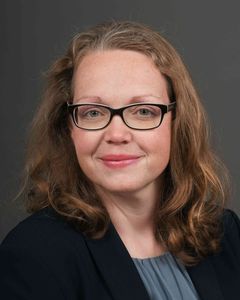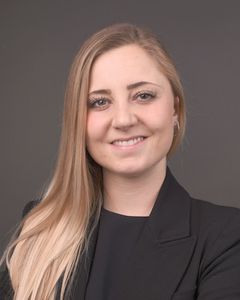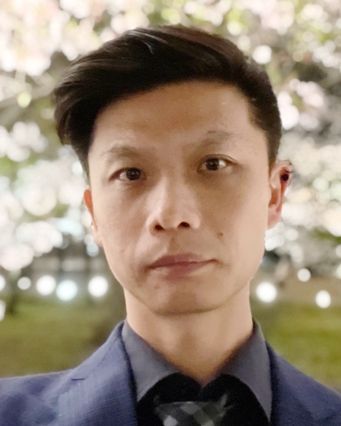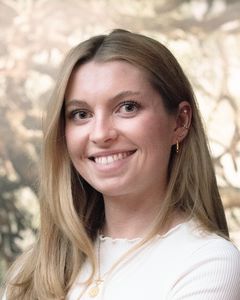iPSZürich Organising committee
In 2019, the iPSZürich network was launched by three enthusiastic young scientists with the goal of fostering connections and collaborations in the field of induced pluripotent stem cell (iPSC)-based research across various disciplines and institutes at the University of Zurich (UZH) and ETH Zürich. Today, our team comprises four early-stage researcher and one experienced senior researcher who are dedicated to cultivating cross-institutional collaborations and enhancing the network among junior scientists engaged in iPSC research in Zurich.
 |
Melanie Generali, PhD (melanie.generali@uzh.ch) In the early 1960s, the key properties of stem cells were defined by Ernest McCulloch and James Till and presented a breakthrough that provided a steppingstone for future science. Melanie has discovered her deep interest in stem cells 10 years ago and it still continues and grows. She studied biology first in Germany and later on in Switzerland. In 2014, she started her PhD at the Institute for Regenerative Medicine (IREM) of the University of Zurich. Her project involved the reprogramming of blood cells into iPSCs, followed by the differentiation into smooth muscle cells and endothelial cells. The final goal was the manufacturing of tissue-engineered vascular grafts (TEVG). As a postdoctoral fellow she worked on a project in close collaboration with the Center for iPS Cell Research and Application (CiRA, Kyoto, Japan) to regenerate ischemic heart tissue using iPSC-derived cardiomyocytes. Inspired by this exchange, she founded in 2021 the iPSC Core Facility at IREM in order to further support scientific innovation and clinical translation. |
 |
Vanessa Budny (vanessa.budny@irem.uzh.ch) Vanessa Budny is a PhD student in the Tackenberg/Nitsch group at the institute for regenerative medicine (IREM) in Schlieren, Switzerland. Her project focusses on the role of apolipoprotein E in human astrocyte physiology in the context of Alzheimer’s disease. Vanessa obtained her master’s degree in medical biology with specialization in neuroscience and in science, management and innovation at the Radboud University Nijmegen, The Netherlands. She first got introduced to iPSCs during her master internship in the Nadif Kasri lab at the RadboudUMC in Nijmegen where she established a dual-SMAD-based NPC differentiation protocol to investigate developmental abnormalities in Koolen-de Vries syndrome patient cell lines. In May 2021 she started her PhD at UZH where she will generate APOE isogenic iPSC-derived astrocytes and neurons to investigate differences in pathways known to be affected in Alzheimer’s disease especially regarding the energy metabolism. By joining the iPSZürich team Vanessa wants to contribute to the exchange of knowledge between researcher and supporting especially junior researcher creating a stronger network within the field of iPSC research. |
 |
Melanie Eschment, PhD (melanie.eschment@medgen.uzh.ch) Melanie is Postdoctoral Researcher at the Institute of medical Genetics in Schlieren. She works on human iPSC-derived brain models for the rare genetic disorder called Joubert Syndrome. She studied Biological Sciences at the University of Konstanz in Germany. In 2018, she finished her Master degree at Roche Pharmaceuticals in Basel, where she implemented and characterized a human iPSC-derived 3D microphysiological in-vitro brain model for the use in pharmaceutical research. Since 2019, Melanie works in the Bachmann-Gagescu Lab, where she obtained her PhD in 2023. During her work she established a human iPSC-derived 3D brain model for a rare genetic disorder called Joubert Syndrome. As seen in the example of Joubert syndrome, classification of genetic variants is one of the biggest challenges in medical genetics. Therefore, another part of her project aimes to test individual patient sequence variants in Joubert Syndrome genes using human neural stem cells. Apart from growing “Brains-on-a-Dish”, she is committed in building a community of young scientists in the field of iPSC-research and thereby fostering new ideas, strategies and collaborations. |
 |
Kelvin Hui (kelvin.hui@cira.kyoto-u.ac.jp) Kelvin obtained his B.Sc. from the University of Toronto (Canada) and he continued with his graduate studies in the Graduate Department of Pharmaceutical Sciences investigating post-mitochondrial regulation of apoptosis as a treatment strategy for acute neural injuries. Following his Ph.D., he pursued postdoctoral training with Motomasa Tanaka at the RIKEN Center for Brain Science (Japan) to examine the contribution of impaired proteostasis to neurodevelopmental and neuropsychiatric disorders. Kelvin returned to North America to continue his work on neuronal autophagy at the University of Texas Southwestern Medical Center (USA) and Ana Maria Cuervo at the Albert Einstein College of Medicine (USA). Kelvin is now part of the CiRA Research Promoting Office, promoting international collaborations to advance basic research and clinical applications of iPS cells, editing manuscripts and grants to complete the research cycle, teaching science presentation and writing classes to next-generation scientists, and organizing career and professional development programs for early career researchers at CiRA. |
 |
Clara Duré (clara.dure@irem.uzh.ch) Clara is a PhD student in the Sendoel lab at the Institute for Regenerative Medicine (IREM) in Schlieren, Switzerland. Her PhD project focuses on the translational control of ageing epidermal stem cells (EpSCs) by using single-cell strategies. Clara obtained her Master's degree in Molecular Cell and Developmental Biology at the University of Innsbruck, Austria, where she focused on stem cell biology. During this degree, Clara conducted her one-year master thesis project at the University of Cambridge, UK, where she got introduced to working with primary stem cells. Clara was working on the phospho-regulation of Ascl2 in homeostatic stem cell maintenance and differentiation in the small intestine. In November 2019 Clara moved to Zurich joining the Sendoel lab for her PhD. Here, Clara established single-cell ribosome profiling for the mouse epidermis to investigate translationally regulated genes that impact ageing EpSCs. By joining the iPSZürich team Clara wants to contribute to the iPSC network by strengthening collaborations withing the iPSC research field beyond the University of Zurich. |
 |
David Taborsky (david.taborsky@irem.uzh.ch) David is a PhD Student working in the Sendoel Lab of the Institute for Regenerative Medicine (IREM) at the University of Zurich (UZH). His project focuses on the role of translational regulation in gastrulation and early embryonic development. After completing his bachelor studies in Vienna, David moved to Dresden for a master’s degree in Regenerative Biology and Medicine at the Center for Regenerative Therapies Dresden (CRTD), working on retina organoids and zebrafish fin regeneration. David remained in Dresden for his Master Thesis in the Rink lab at the Max Planck Institute for Cell Biology and Genetics (MPI-CBG), investigating the extensive regenerative abilities of planarian flatworms. In December 2019 David moved to Zürich, joining the Sendoel Lab for his PhD. Here he investigates the role of various regulators of protein biosynthesis in the context of early mammalian development, using an organoid model system known as “gastruloids”. By joining the iPSZürich team, David hopes to gain insights into the dynamic field of iPSC research and help foster a collaborative network in this field in and beyond Switzerland. |
Thank you to our alumni: Dr. Matthew Denley, and Dr. Ambra Villani


